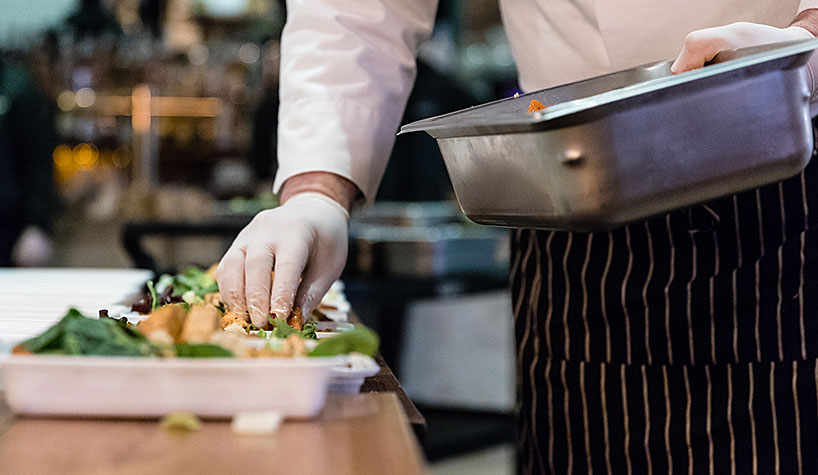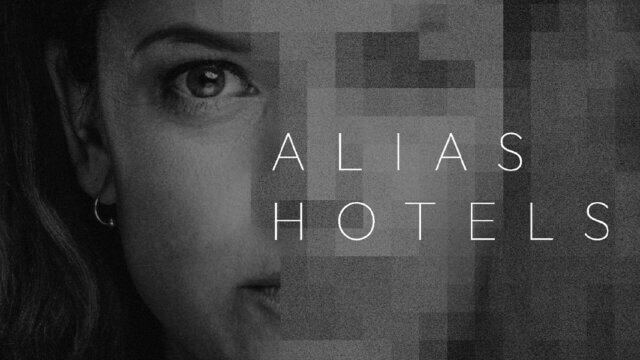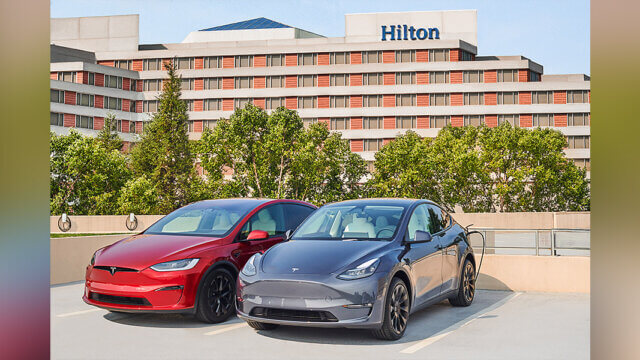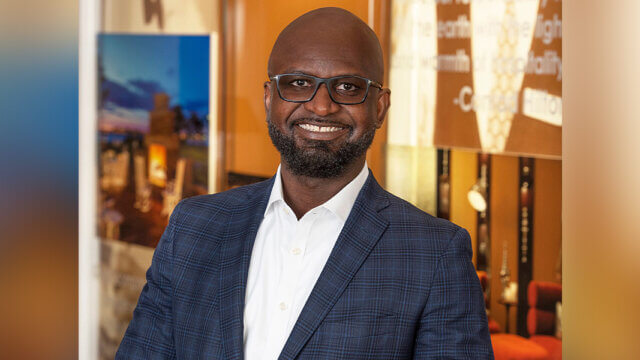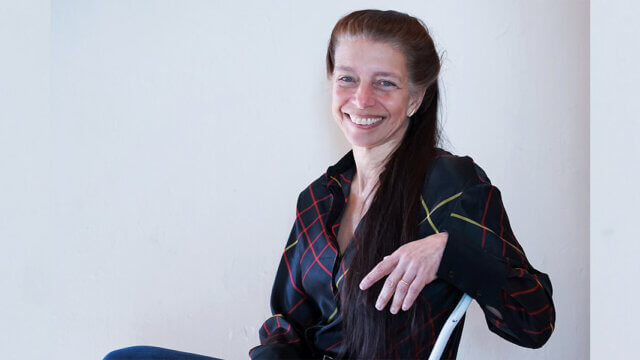NEW YORK—After five years of changing the way hotels offer food and beverage to guests here, Butler Hospitality is expanding its operations to Chicago, and will soon be in Miami and Washington D.C.
Premtim Gjonbalic, CEO/founder, Butler Hospitality, launched the company after opening his restaurant at 19 at a DoubleTree by Hilton in Manhattan’s Financial District. “Then I built a hospitality company in New York that ran hotel food and beverage at five big box hotels,” he said. “The whole world was exposed to me of really understanding the whole eco-system of hotels. Understanding what is a REIT? What it is a property owner, and a manager and a brand and what do they have to do with one another? And really understanding why hotels had so much trouble with food and beverage. A lot of these REITs had trouble keeping up with the ever-evolving food and beverage scene, whereas a room could sit with the same aesthetic for seven-plus years before a PIP. But Matcha is in this season and not next season. I saw the troubles there.”
While some hotels look at food and beverage operations as loss leaders. Gjonbalic looked at them as underutilized assets. “I said, ‘Wait, there is a bigger play here. What if I could take over an underutilized hotel restaurant kitchen and then leverage the back door to simply deliver to local limited select-service hotels? Put together amenity menus. I would watch the front desk supervisor run across the street and find a cupcake for a Hilton Honors guest. I would look at front desk appreciation week and housekeeping week and say, ‘Why can’t we standardize menus for these. Then ultimately room service. Why can’t I change the delivery experience, and experience overall for what we called in-room hospitality.”
He continued, “Hotels had discouraged food and beverage for a very long time because they couldn’t figure it out. They discouraged it with a lack of quality and high cost and tons of fees. We said we can change this. Delivery is hotter than it has ever been. Guests are more prone to delivery than they ever have, so they are okay with delivery, but hotels weren’t able to deliver that experience. Think about it? You have door hanger you are filling out and hope it comes tomorrow morning. It is probably not going to get there, and we said why can’t you just fill that sheet out on your phone, get a confirmation and we can leverage technology to deliver that experience with any human interaction and add value to your trip. We do that in under 30 minutes for on-demand orders, It is directly integrated. There are no fees and no minimums. If you want a Coke, we will deliver a Coke.”
The company runs full-service restaurant kitchens in hotels that then deliver to the local hotels and is now available in 35,000 rooms in New York at more than 120 hotels. “We have quite the logistics operation,” he said. “Everything is cooked to order. However, we do have a commissary model, in which larger hubs that have traditionally bigger banquet spaces become our prep kitchens. All of our outlet kitchens that exist throughout the city are essentially our last-mile kitchens. Everything is being executed fresh-to-order. Everything is scratch cooking. We have a full culinary team, executive chefs that come from top restaurants. They are building seasonal menus, thinking about margin, thinking about efficiency and then ultimately the guest experience.”
Butler Hospitality is essentially a vendor partner with the hotels with which it works. “We are a fully branded experience in the room,” said Gjonbalic, “We are a B2B2C business. We contract hotel and hotel groups and then ultimately deliver to the end guest. We are built for hotels to satisfy guests. We actually take the entire mile. We are completely vertical. We own the kitchen. We cook the food, we deliver the food to the room.”
Hotels partners participate in a 10% revenue share. “Ultimately, there are a number of ways that hotels continue to make money with us,” he said. “We have gone completely digital with vouchers, so hotels actually bundle them with rooms. We will offer it to corporate accounts. We only charge on vouchers redeemed, not on vouchers issued. There are a ton of ways that hotels are able to leverage our platform in terms of offering more, bundling rooms and ultimately getting a higher ADR.”
Gjonbalic said that prices are in line or more affordable than what is found in the market. “We are definitely way under the room service average for New York—less than 50%. We are able to do this because we run these restaurants. We gain efficiency by running the restaurants and then ultimately delivering out the back.”
The company wants to be the voice of hotel food and beverage. “We want to continue to be that voice because I feel that right now there is no one voice for what hotel food and beverage should be,” he said. “We put together a matrix of all the brand standards, went out and spoke to all of the brands in terms of the brand reps and put together a menu that we felt was core in that it hit a lot of what hotels required, but also to an extent where we went out and got waivers because we said, ‘Hey listen, we are actually listening to guests every day. We understand the market more than you ever will. We have hard data in terms of order preferences, delivery times.”
The company’s system can work in any location according to Gjonbalic. “We recently launched Chicago, which is really exciting,” he said. “We have a deal with Oxford Hotels and Resorts, working within their portfolio. We have a serious network effect. We go into a new market and we are able to leverage our current contacts and relationships. A lot of our partners are ownership groups and management companies and they all have portfolios that span across the country. In Chicago, our partners represent about 13,000 rooms in the market. Now we are steadily onboarding those properties and are officially live.”
